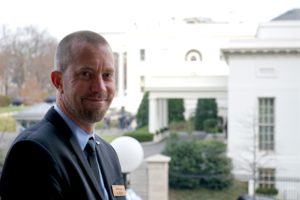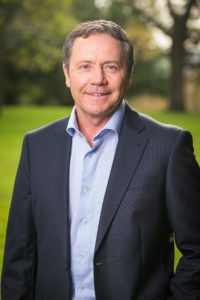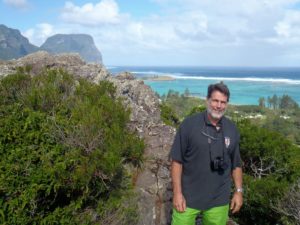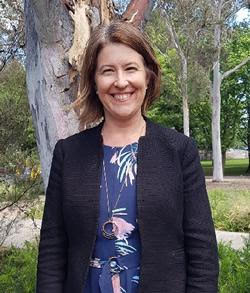We are very pleased to introduce our Keynote Speakers for the Island Arks Symposium VI – Rottnest Island, Western Australia in February 2019
Alternative pest management strategies and working for communities on islands
Karl Campbell
Karl works for Island Conservation and has a PhD from the University of Queensland, Australia. As part of his doctoral work, he developed advanced procedures for Judas goats, involving sterilization, pregnancy termination, and hormone therapy, which he applied to increase the effectiveness of Judas goats in large-scale campaigns he was managing in the Galápagos Islands. Karl has more than 20 years of island restoration experience and has served as field manager of the world’s two largest island restoration projects on Isabela and Santiago Islands. He is experienced in planning, budgeting, and implementing large-scale projects and developing innovations to make them feasible and increase their cost-efficiency. Current projects involve developing the social conditions for eradicating invasive predators from inhabited islands in the Galapagos and Chile. In the last years Karl has also been involved in explorations and development of genetic technologies for vertebrate pest management.
Return to Life
Ed Chignell
Ed Chignell is the Chief Executive of Predator Free 2050 Limited, a government-owned company established in 2016 to progress the goal of ridding New Zealand of rats, possums and stoats by 2050. Invasive mammals have had a devastating impact on the country’s unique indigenous biota. Nearly a quarter of native bird species have been lost and only a fifth are safe from extinction.
Predator Free 2050 Limited facilitates co-funding to enable large landscape predator control and eradication operations and breakthrough scientific research. The company’s first tranche of projects will enable over $100 million of predator control and eradication operations to be undertaken across more than 1.5 million hectares.
Island Biogeography and Evolution in the eastern Indian Ocean</strong
Ric How
Adjunct Professor, School of Human Sciences, University of Western Australia.
Formerly: Senior Curator, Department of Terrestrial Zoology, Western Australian Museum. Ric has researched and published on vertebrate ecology and biogeography for over 50 years, working extensively in Australia and Indonesia with specific studies in Sri Lanka and southern China. Through 1987-93 he was involved in a vertebrate survey of 28 islands in Eastern Indonesia, evaluating the relationship between the Asian and Australasian faunas across Wallacea. Collaborating with colleagues at UWA he examined 35 islands in the Bonaparte Archipelago and, later, 19 islands across the Houtman Abrolhos. He supervised a baseline biodiversity survey of Sri Lanka in 2006-08 and has been involved in studying fauna on Barrow and Rottnest Island.
Australia’s Threatened Species Strategy and the role of island safehavens
Sally Box
Dr Sally Box has been appointed as Australia’s new Threatened Species Commissioner. The Threatened Species Commissioner champions the implementation of the Threatened Species Strategy and practical conservation actions to recover our most threatened plants and animals. Using the principles of science, action and partnership, the Commissioner works with conservation organisations, governments, community and the private sector to improve the trajectory of our threatened species. Dr Box has a PhD in Plant Sciences and began her career in the Department of the Environment and Energy working on threatened species assessments. Since, she has worked with the community to design and deliver programs focused on threatened species conservation, including through her leadership of the Green Army. Dr Box has also worked in partnership with scientists and landholders to deliver the Emissions Reduction Fund and most recently worked on the Paris Agreement in the Department’s international climate change area.




